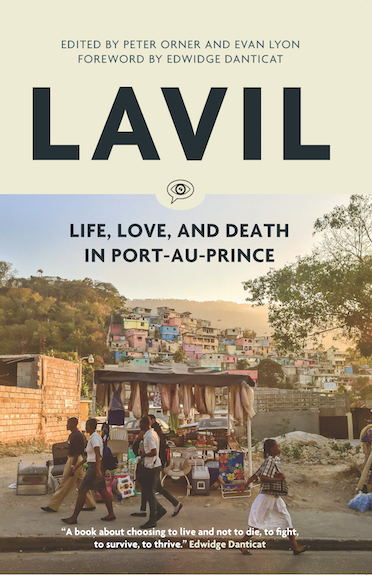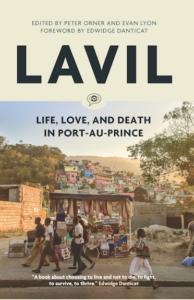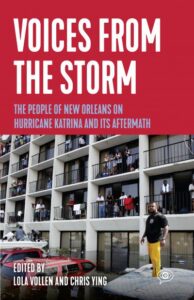The Voice of Witness book series amplifies the stories of people directly impacted by—and fighting against—injustice. We use an oral history methodology that combines ethics-driven practices, journalistic integrity, and an engaging, literary approach.
The books explore issues of inequity and human rights through the lens of personal narrative. Each project aims to disrupt harmful narratives by supporting historically marginalized or silenced communities to tell their own stories in their own words.
Book clubs are useful tools for engaging and interacting with these oral histories and the issues they highlight. Find our handout with guidance on planning and facilitating one here.
Use the questions below to start a book club for Lavil: Life, Love, and Death in Port-Au-Prince.

Discussion Questions:
- Haiti’s history is complex; it is one of struggle, resistance, and independence, but also one of imperialism and colonialism. How do you think Haiti’s colonial history has impacted its identity as a country? How has colonialism shaped the stories that are told about Haiti?
- In his introduction to Lavil, editor Peter Orner writes: “The minute you begin to listen to someone, anyone, they become something far more than the adjectives we use as a shorthand to describe them.” What does this quote mean to you?
- When the earthquake hit Port-au-Prince, many families lost their homes in a matter of minutes. What physical, mental, emotional, and spiritual effects might this kind of catastrophic loss have on people?
- Frantz Santil says in his narrative that “poor people really don’t relax.” Do you agree or disagree with this statement? Why or why not?
- Djenane describes her mother as “free” and “happy” when she dances. George talks about his dedication to his art—making Vodou flags. Can creative expression (such as dance, or any other art form) help to mitigate the impacts of oppression? If so, how?
- In his narrative, Lamothe Lormier writes: “Haiti is a leader. Ours was the first slave revolution in human history that succeeded. To me, that’s a lot to share with the world.” Is this the dominant narrative that is shared about Haiti? What do people in other countries
around the world think about Haiti? Who or what controls which stories get shared about a people or place? - Adrienne tells the heartbreaking story of her young daughter’s rape, and the Haitian police’s refusal to help her. How must Adrienne have felt when she learned about what happened to her daughter? When the police treated her, and not her daughter’s rapist, as a criminal? What long-term impacts can these feelings have on someone’s mind and body?
- Bazile, who endured abandonment and homelessness while growing up, says that the earthquake in Haiti finally made her feel equal to everyone else, since they became homeless as well. Does this perspective make you think about natural disaster in any new or different ways?
- Several of the narrators in Lavil talk about their experiences with TB (Tuberculosis) and HIV (Human Immunodeficiency Virus). Their health problems are clearly compounded by factors of oppression, and poverty. How does political corruption in Haiti impact access to medical care?
- Several of the narrators in Lavil discuss the vast differences between “the city” (Port-au-Prince) and “the andeyo” (the country). From their perspective, what are some of the benefits and complications of living in each place? For example, how might the anonymity of living in a city like Port-au-Prince be both beneficial and challenging? Can you relate to the experiences of city or country life described by the narrators in Lavil?



